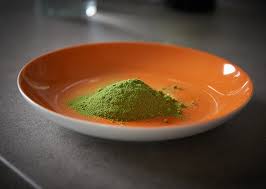Is Moringa The New Black?
People are taking notice of Moringa as a natural supplement, but is it all just hype? Here is a look at the origins and benefits of this naturally occurring plant.
As always, if you are looking to improve your health or get tips on leading a healthier lifestyle, consult here for advice from professionals at Authority Health.

What Is Moringa?
Of all 13 Moringa tree species, one stands out – the Moringa oleifera tree. Commonly called the ‘Horseradish Tree’, it’s also known as the ‘Wonder Tree’. Believed to have originated from northern India and in use for the last 5000 years, this tree provided nutrition to the ancient Romans, Egyptians, and Greeks. Today the tree is found predominantly in Asia, Africa, and parts of North America where tropical and subtropical climate prevails.
Moringa leaves are described as superfoods with the unbelieve potential to alleviate malnutrition globally. In addition, other benefits of this plant have come to light, making this humble green leaf a current fad.
6 Benefits Of Moringa
The Moringa leaf, eaten in the right quantities, affords vitamins and minerals sufficient for daily nutritional needs. Moringa is loaded with more calcium than milk, more beta-carotene than carrots, more Vitamin C than oranges, and more protein than eggs or yogurt. In addition, it is packed with potassium, zinc, iron, kaempferol, quercetin, rhamnetin, magnesium, vitamin E and B-complex vitamins.
The actual Moringa leaves can provide most of the vitamins and minerals the body needs. Moringa leaf extract or powder is also able to act as a defense against free radicals, thereby protecting body cells, while also repairing and regenerating tissues.
1. Reduces Cardiac Plaque
Moringa can lower serum cholesterol and reduce atherosclerotic plaque. Research studies on rats indicate a 50% reduction in serum cholesterol levels, and 86% in atherosclerotic plaque of the arteries over just 12 weeks.
2. Manages Blood Sugar
Moringa leaves can help control blood sugar levels – preventing and managing diabetes – because they are a good source of fiber and they contain quercetin-3-glucoside, isothiocyanates and chlorogenic acid, anti-inflammatory and immune-modulating properties.
3. Aids In Arthritis
The same properties which aid blood sugar are also said to help with certain arthritic complaints, such as rheumatoid arthritis and scleroderma, by reducing the swelling and pain.
4. Improves Kidney And Thyroid Function
Moringa can help to detox the kidneys, while solving urinary tract infections and treating kidney stones by flushing out calcium from the kidneys.
Moringa also helps people with overactive thyroid problems by reducing thyroid hormone levels. Moringa leaves may, conversely, help those with an underactive thyroid avoid thyroid replacement.
5. Accelerates Weight Loss
As Moringa has diuretic and anti-inflammatory effects, it aids in reducing water retention. In addition, the high fiber content of the leaves helps to minimize fat absorption in the stomach. Furthermore, as this substance also helps to reduce insulin resistance, it can prevent excess fat from accumulating. Moringa also has a mildly laxative effect, assisting in bowel regularity.
6. Stimulates Hair and Skin
Moringa leaves offer a high concentration of vitamins and minerals, such as zinc, vitamins A and E, and amino acids. Moringa oil helps stimulate hair growth and increases blood circulation. In doing so, scalp health is augmented, and dandruff controlled, preventing hair loss.
As Moringa is high in vitamins A, C, E, and several B complex vitamins, its antioxidant properties help to reduce cell damage and aging caused by free radicals. Healthier skin and a youthful appearance are the outcome.
The Moringa leaf ameliorates skin problems such as acne, and blackheads caused by overproduction of oil secretion from the skin glands, together with bacterial and fungal infections. Other problems such as eczema and psoriasis may also be reduced, as Moringa has a moisturizing and anti-inflammatory effect on the skin.
What are the side effects of Moringa?
Although the leaves from a Moringa oleifera tree are seen as safe and edible, the roots and stems may be harmful, particularly for women. Roots and stems of the Moringa tree act as a temporary or permanent contraceptive. However, an unpleasant possibility is miscarriage. In addition, these parts of the plant should not be ingested as they could also have immunosuppressive and cytotoxic effects
Conclusion
The many incredible benefits of Moringa have people stocking up on supplements from this wonder tree. This is one superfood you will want to get your hands on.





